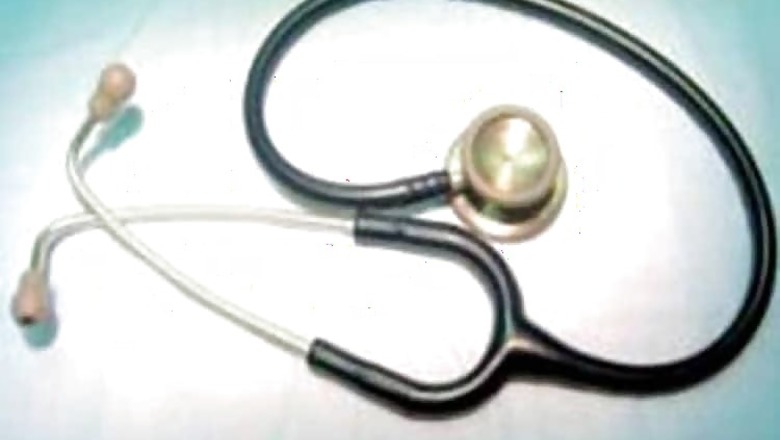
views
Synonymous with the term ‘city of dreams’, Mumbai continues to grow at a rapid pace, its citizens ready to take up any challenge that comes their way. Public health continues to be a challenge owing to the sheer volume of people that have made Mumbai their home.
Often considered an ancient disease, Tuberculosis (TB) continues to plague our beloved city and country alike. As per the Revised National Tuberculosis Control Program (RNTCP), India saw approximately 22 lakh cases of TB in 2014 of which Mumbai shares a sizeable figure. In recent years the issue has been complicated by drug resistant forms of TB both in the city and across the country.
The major factors that have contributed to this phenomenon have been the lack of standardised high quality care across the private sector as well the difficulties faced by patients in adhering to the long TB treatment regimens. More than half the TB patients in India seek care in the private sector. Studies have shown that private healthcare providers are often the first point-of-care even for patients who are eventually treated in the public sector.
Studies have also shown that the private sector also needs to be more aligned with the Revised National TB Control Programme (RNTCP) prescribed Standards of TB Care in India (STCI). This combined with the fact that treatment may incur heavy out-of-pocket expenditure, leads to lack of adherence among patients.
The Municipal Corporation of Greater Mumbai (MCGM) hasn’t taken this issue lightly and launched an ambitious plan in 2013 termed the Mumbai Mission for TB Control. Several partner agencies came together to form an alliance which has come a long way since its inception.
The Mumbai Mission continues to strive towards its aim of achieving Universal Access to early TB and multi drug resistant (MDR) TB diagnosis and appropriate TB treatment in the public and private sectors. The Mission was fortunate to enlist Amitabh Bachchan as its brand ambassador for the successful campaign ‘TB Harega Desh Jeetega’ which has now been scaled up nationwide.
Owing to the large number of patients accessing the private sector, it is therefore essential for the public sector to engage with the private sector, to ensure comprehensive TB treatment and awareness. To ensure the same, the Private Providers Interface Agency (PPIA) pilot though PATH (Program for Appropriate Technology for Health) in Mumbai started its operations in 2014 as part of MCGM’s Mumbai Mission for TB Control.
It is currently operational in 130 hubs in 19 wards of Mumbai. The model has also seen the implementation of ICT to ensure TB treatment. Through the programme, 10,675 patients have been notified, 6882 patients initiated on free drugs and 656 cases of MDR-TB have been detected.
The MCGM has 16 peripheral hospitals in the city and 5 specialised hospitals of which Sewri TB hospital is a dedicated TB hospital. In the area of diagnostics, rapid improvements have taken place.There are 8 GeneXpert machines in public healthcare facilities and we plan to add one machine per district in the next couple of months.
There is always scope for us to learn from and share our learnings with other countries. Representatives from the MCGM, including myself, recently attended the Union Conference on Lung Health in Cape Town, South Africa. It was with great pride that we could share Mumbai’s progress and achievements over the past one year. Although our experiences at The Union, made us realise, how we have so much more to do. South Africa’s success with the implementation of Information Communication Technologies (ICT) for TB care shows us that ICTs hold a lot of promise.
It is challenging to tackle the burden of TB in a vast and complex city like Mumbai. Success of the PPIA pilots, have shown how there is a need to scale-up this programme at the state and national level. It is up to us to work closely with all our partners in implementing various measures and techniques. Our progress so far would not have been possible without our partners who include PATH, Medicins Sans Frontieres (MSF), Foundation for Medical Research (FMR), Global Health Strategies (GHS), Bill and Melinda Gates Foundation, Tata Institute of Social Sciences (TISS), Clinton Health Access Initiative (CHAI), Initiative for Promoting Affordable and Quality Tests (IPAQT) and Ernst and Young (E&Y). It is important for us to learn from our experiences and achievements and showcase to the rest of the country what TB in Mumbai has taught us. Mumbai can hence serve as a model for the rest of the country.
(The author Sanjay Deshmukh (IAS) is Additional Municipal Commissioner, Municipal Corporation of Greater Mumbai – MCGM.)




















Comments
0 comment